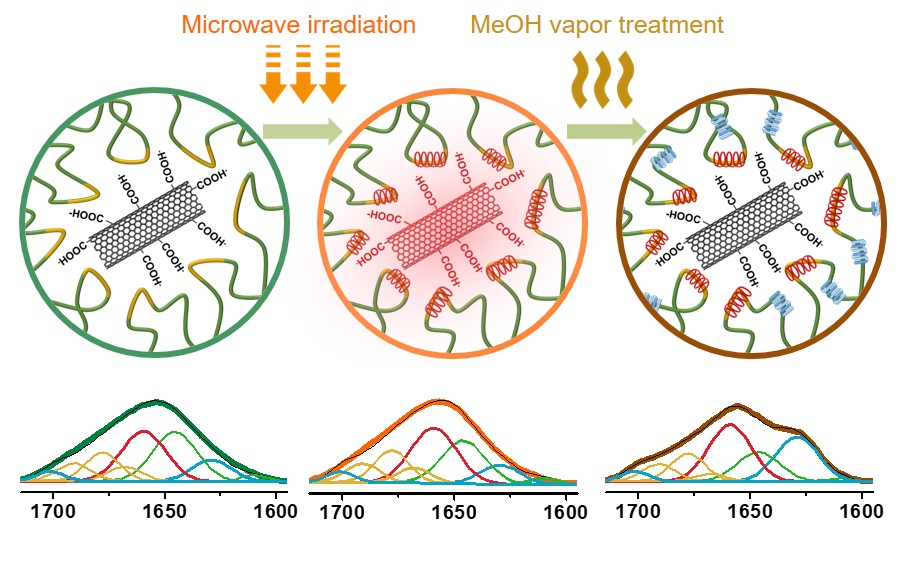
Year
2018Abstract
Tunability of the properties of regenerated silk fibroin (RSF) films is required for use as flexible substrates in many applications aimed at exploiting their unique mechanical, optical and degradation properties, such as bioelectronic and biomedical devices. Here, a new approach for programing these properties is demonstrated based on molecular interactions between fibroins and functionalized carbon nanotubes (CNTs), combined with microwave heating. RSF-CNT composite films were irradiated with microwaves, resulting in local heating and local structural transition of amorphous silk fibroin molecules to stable helical structures. Upon microwave irradiation, a significant increase of helix secondary structure between 18.9 and 35.5% was observed with increasing CNT content. By further methanol vapor treatment, the composite films with different helical content exhibited controllable mechanical and degradation properties combining the higher extensibility and faster degradation of α-helix structures with the higher strength/stiffness and slow degradation of β-sheet structures. Hence, our work enables a high degree of tailoring the properties and structure of functional RSF-based films for flexible electronics and biomedical devices.








